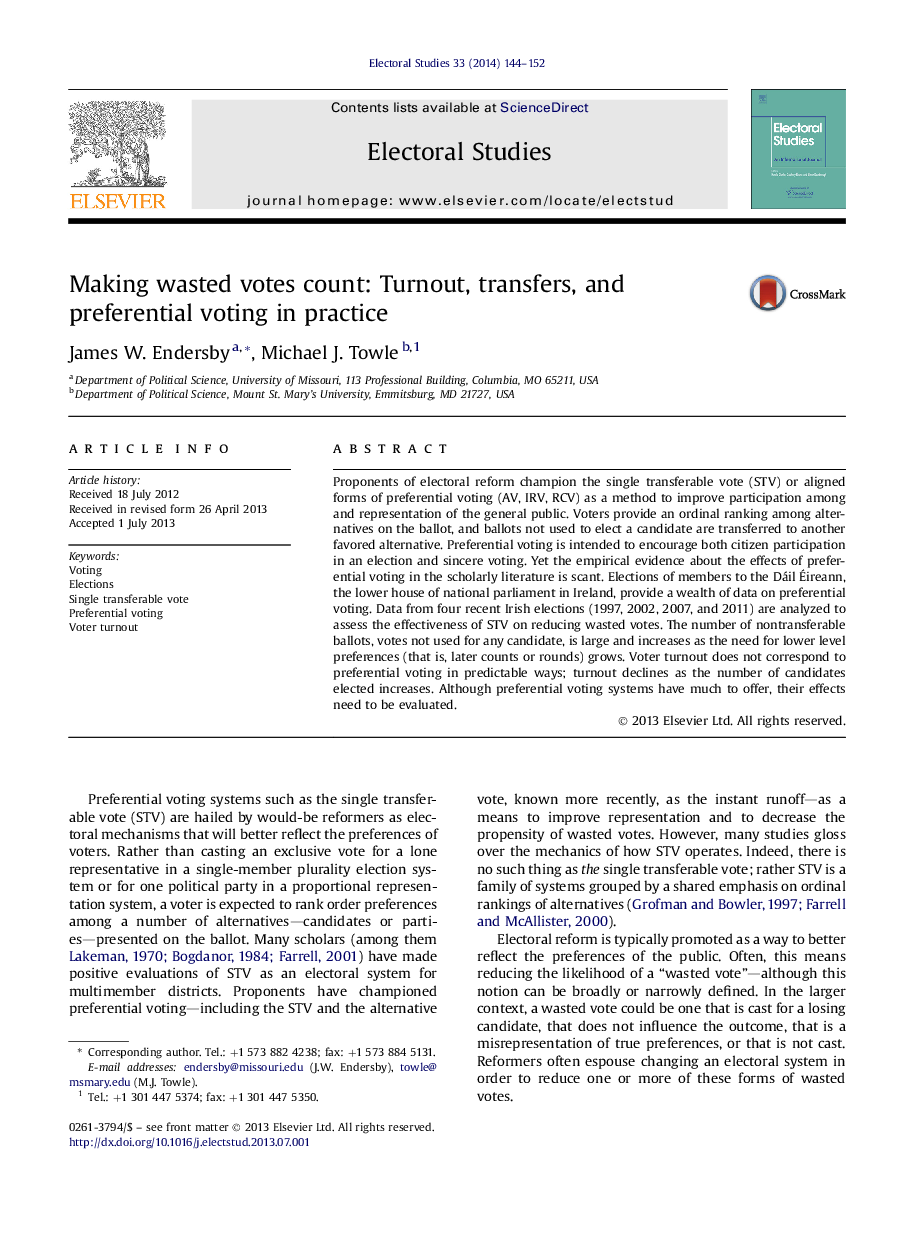| کد مقاله | کد نشریه | سال انتشار | مقاله انگلیسی | نسخه تمام متن |
|---|---|---|---|---|
| 1051899 | 1484960 | 2014 | 9 صفحه PDF | دانلود رایگان |
• STV has been adopted to increase turnout and representation of voter preferences.
• Four Irish national elections provide data for analysis on these proposed effects.
• Many transferable ballots are not counted, reducing the representation function.
• Voter turnout does not increase as the number of elected officials increased.
• Preferential voting does not always decrease “wasted votes” as predicted.
Proponents of electoral reform champion the single transferable vote (STV) or aligned forms of preferential voting (AV, IRV, RCV) as a method to improve participation among and representation of the general public. Voters provide an ordinal ranking among alternatives on the ballot, and ballots not used to elect a candidate are transferred to another favored alternative. Preferential voting is intended to encourage both citizen participation in an election and sincere voting. Yet the empirical evidence about the effects of preferential voting in the scholarly literature is scant. Elections of members to the Dáil Éireann, the lower house of national parliament in Ireland, provide a wealth of data on preferential voting. Data from four recent Irish elections (1997, 2002, 2007, and 2011) are analyzed to assess the effectiveness of STV on reducing wasted votes. The number of nontransferable ballots, votes not used for any candidate, is large and increases as the need for lower level preferences (that is, later counts or rounds) grows. Voter turnout does not correspond to preferential voting in predictable ways; turnout declines as the number of candidates elected increases. Although preferential voting systems have much to offer, their effects need to be evaluated.
Journal: Electoral Studies - Volume 33, March 2014, Pages 144–152
